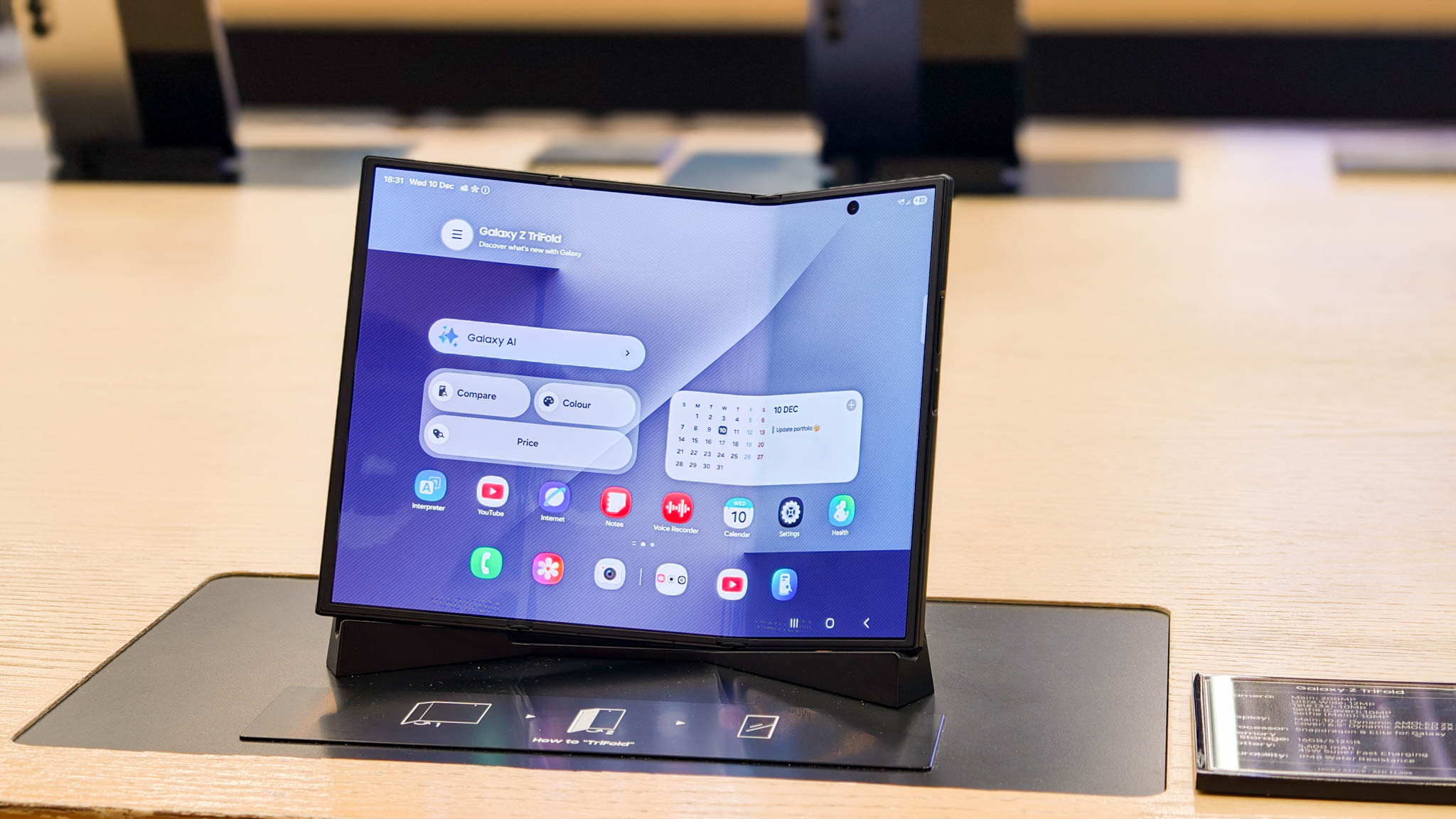DiskStation DS923+ vs. DiskStation DS920+: Which 4-bay Plex NAS should you buy?
The DiskStation DS923+ offers enticing upgrades, but it misses out in one key area.
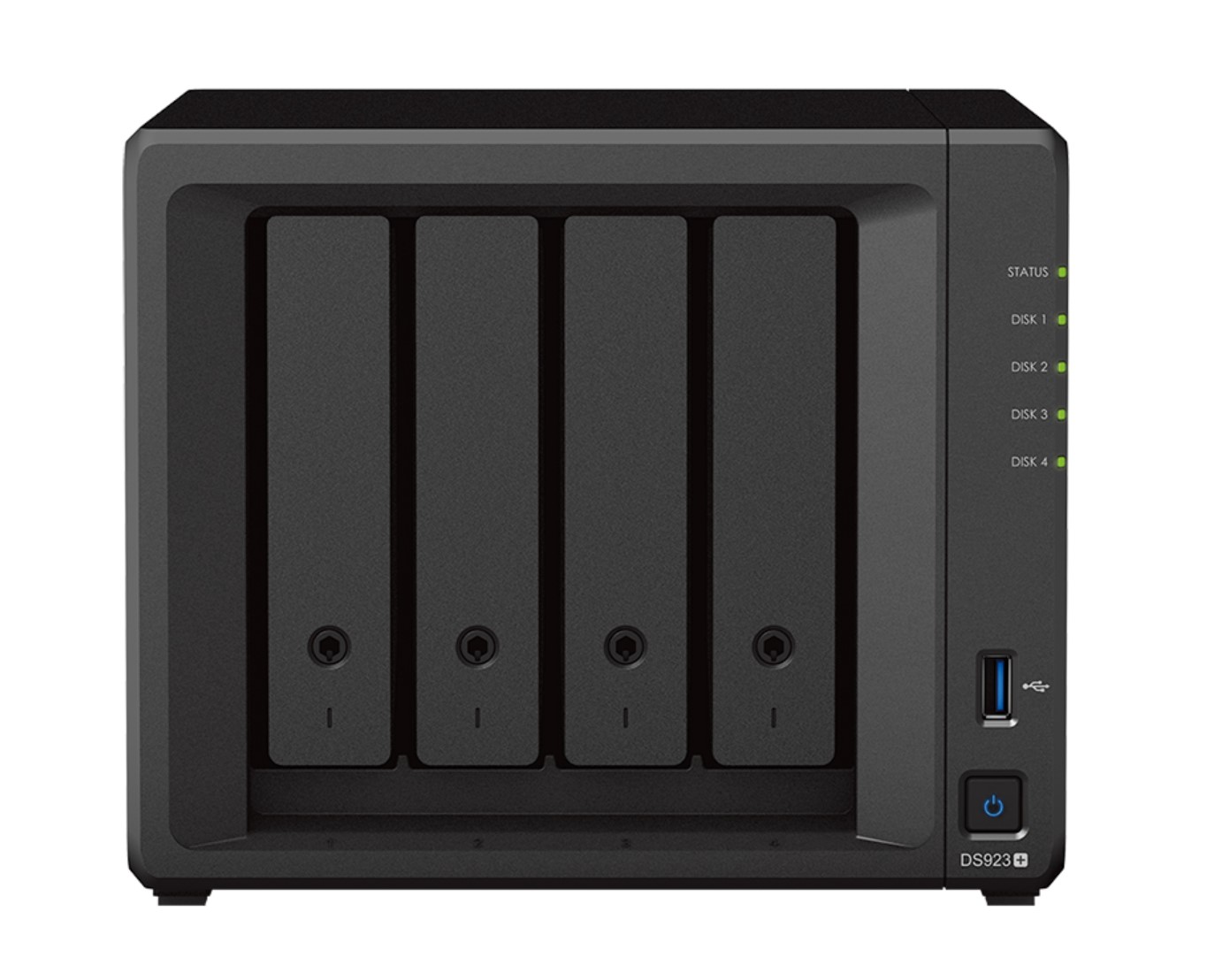
The ideal Plex server
The DiskStation DS923+ comes with oft-requested features, key among them the ability to use M.2 drives for storage. You also get the ability to add in a 10GbE networking card down the line, and the switch to Ryzen hardware delivers much better performance in daily use over its predecessor. While the Ryzen R1600 has a lot to offer, it doesn't include an integrated GPU, so you miss out on Plex transcodes. Regardless, the DS923+ continues to be a terrific choice if you want a powerful 4-bay NAS that can be used as a media server.
Pros
- Powerful Ryzen hardware
- Class-leading software features
- eSATA port is intact
- Ability to use M.2 drives as storage
- Optional upgrade to 10GbE
Cons
- No 2.5GbE ports
- Cannot transcode Plex
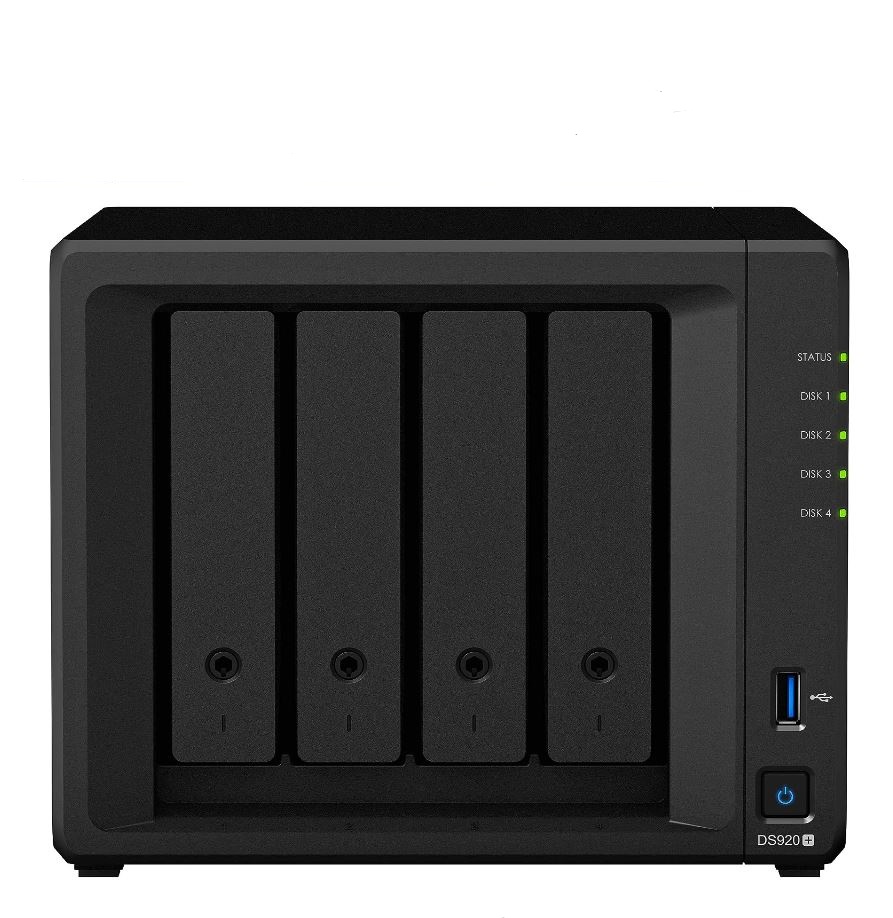
Still going strong
The DiskStation DS920+ still has a lot to offer, but it misses out on a few features that are present on the DS923+: the M.2 drives can only be used for SSD caching, and there's no ability to upgrade to multi-Gigabit connectivity. But it has a distinct advantage over the DS923+ in that it can natively transcode Plex content. So if you need a media server with built-in transcoding, the DS920+ is still the best overall choice. But if you don't care about the feature, you should just get the DS923+.
Pros
- Built-in Plex transcode
- Dual Gigabit Ethernet ports
- eSATA lets you add additional drives down the road
- Outstanding software features
Cons
- Cannot use M.2 drives as storage
- No upgrade options to 2.5GbE or 10GbE
- Limited availability
DiskStation DS923+ vs. DiskStation DS920+: What's the same
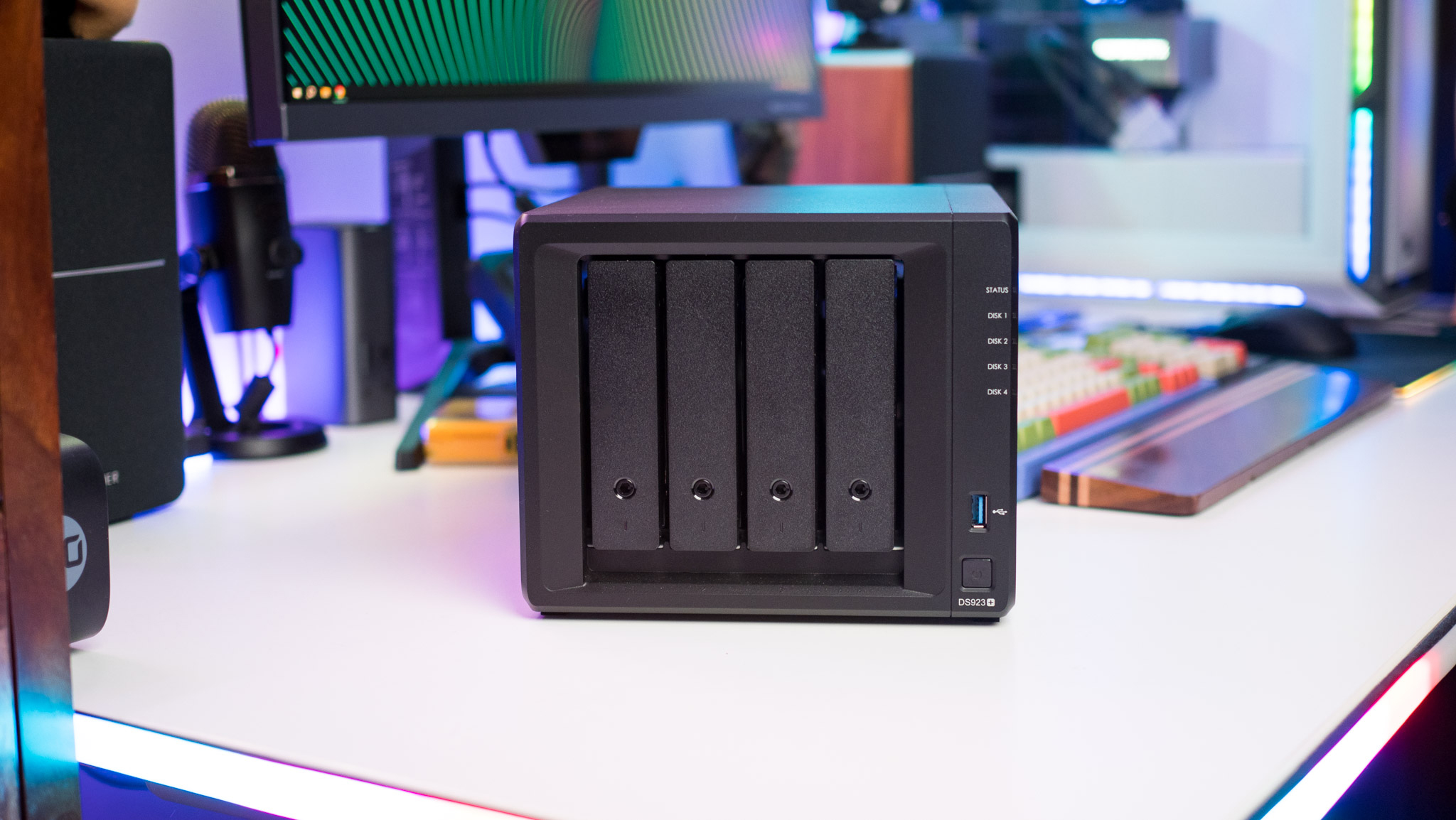
Synology isn't known for making changes to its design aesthetic, and its NAS servers have followed the same broad styling for the last seven years or so — at least from the time I've been reviewing them. Therefore, the DiskStation DS923+ looks identical to its predecessor, with both models featuring the same metal chassis with plastic drive trays.
You get four drive bays on both models, and a similar set of ports: dual M.2 bays located on the underside, two SO-DIMM RAM slots, dual Gigabit Ethernet ports, and an eSATA port that lets you add an additional set of drives to the NAS. You can add a 5-bay DX517 unit to either server, bringing the total number of eligible drives to nine.
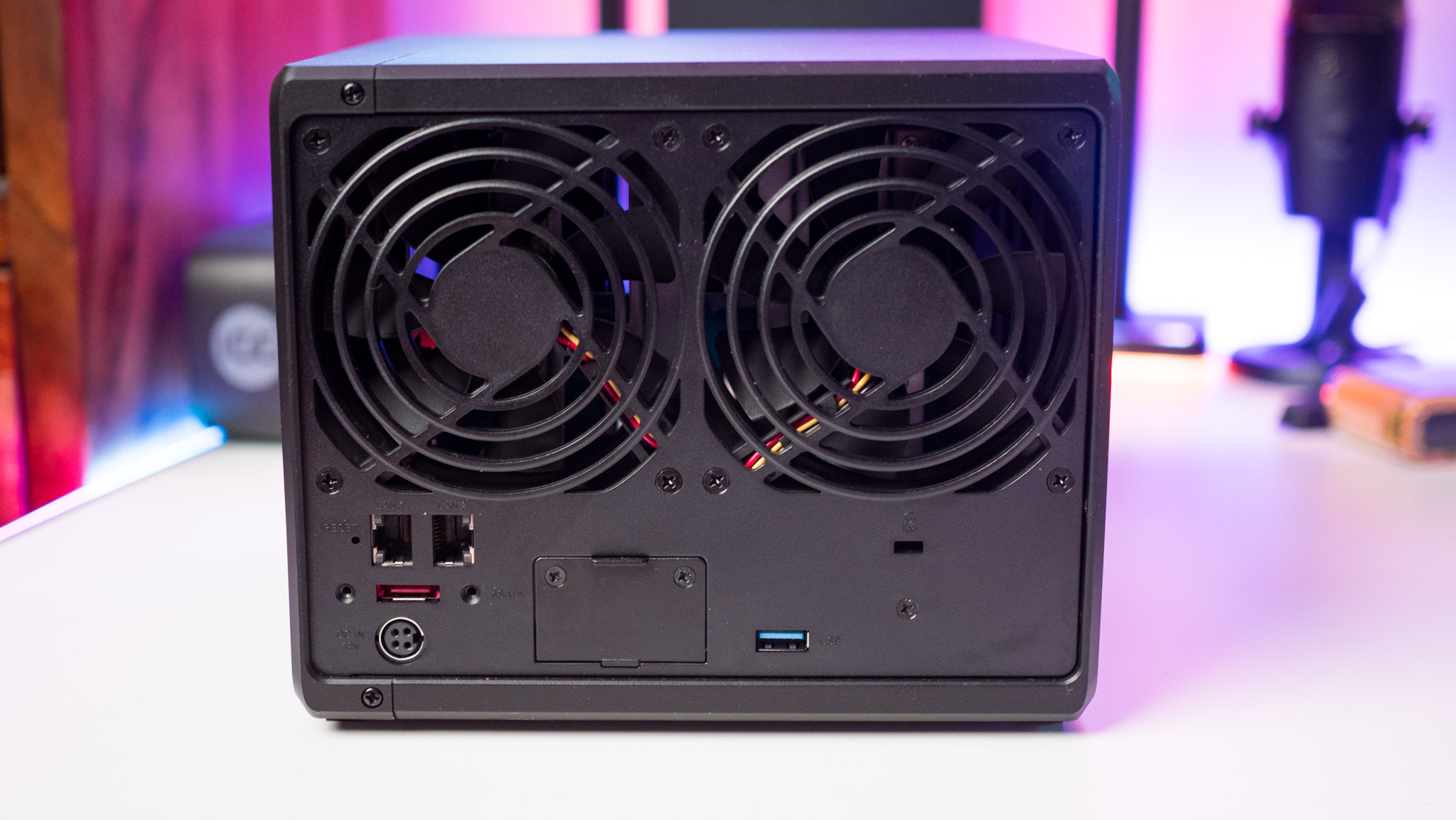
There are dual USB 3.2 Gen 1 ports on both servers, with one port situated at the front and the other at the back. You get the same set of LEDs on either model, with LEDs for individual drives and overall system status. Both servers also have the same dual 92mm fans at the back, and the noise levels are roughly the same in daily use.
Things are on an equal footing on the software front as well. Both servers run Synology's DiskStation Manager (DSM) 7.1.1, and offer a similar set of utilities. The biggest reason for buying Synology's NAS servers is the software; DSM 7.1.1 has just about everything you need, and the ease of use combined with the extensive feature-set makes the OS well-suited for power users and newcomers alike.
DiskStation DS923+ vs. DiskStation DS920+: What's different
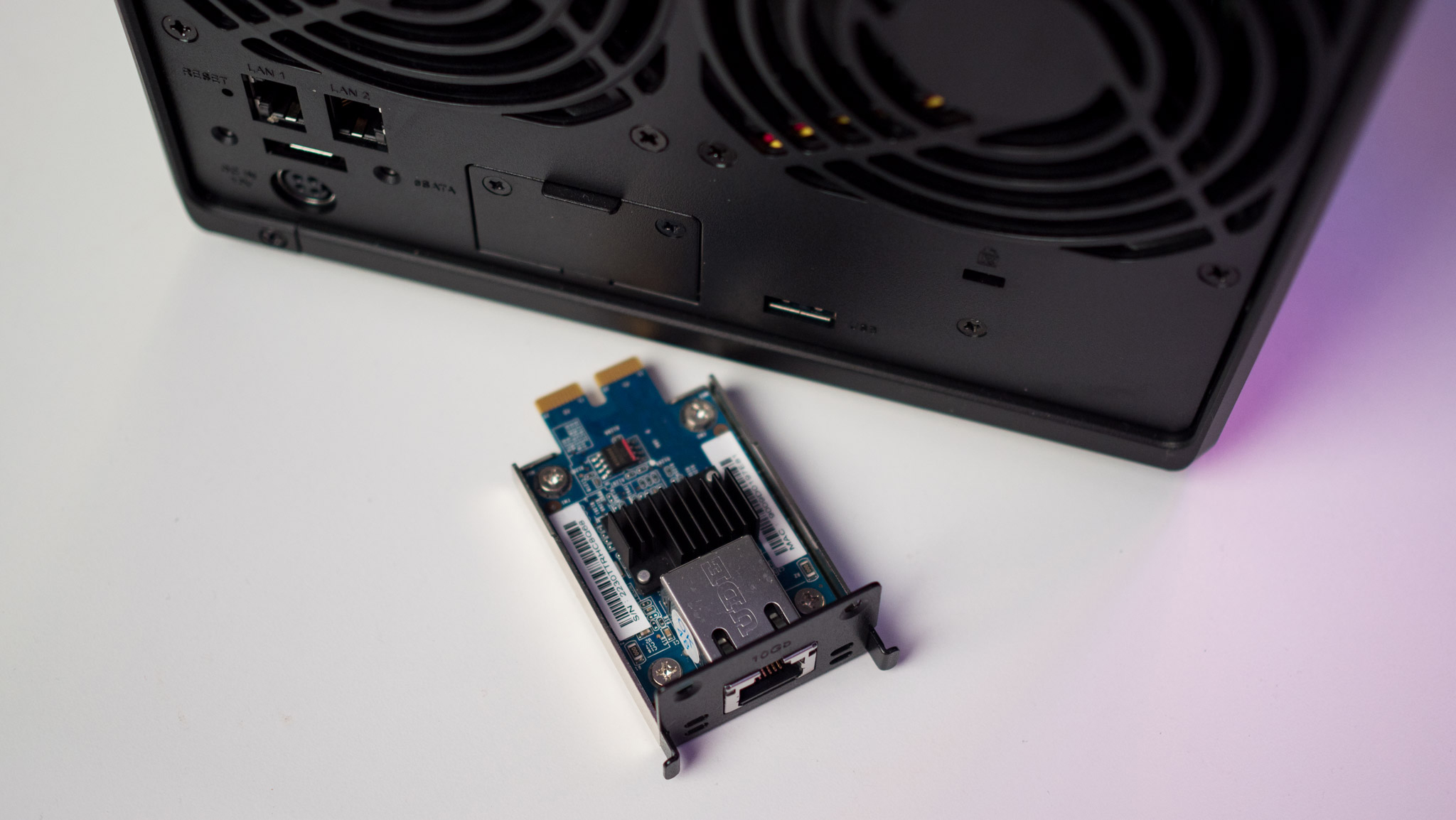
The biggest difference between the DiskStation DS923+ and DS920+ is the hardware. The DS923+ is powered by AMD's dual-core Ryzen R1600, and it has heady gains over the Intel's Celeron series that was heavily featured until last year. The one downside is that the R1600 doesn't come with an integrated GPU, and as a result it cannot transcode media.
The DiskStation DS920+ with its Intel Celeron J4125 doesn't have this particular problem, and Synology's reasoning to switch to AMD has proven divisive. The inability to transcode limits the usability of the DS923+ with Plex as a subset of the userbase needs this feature.
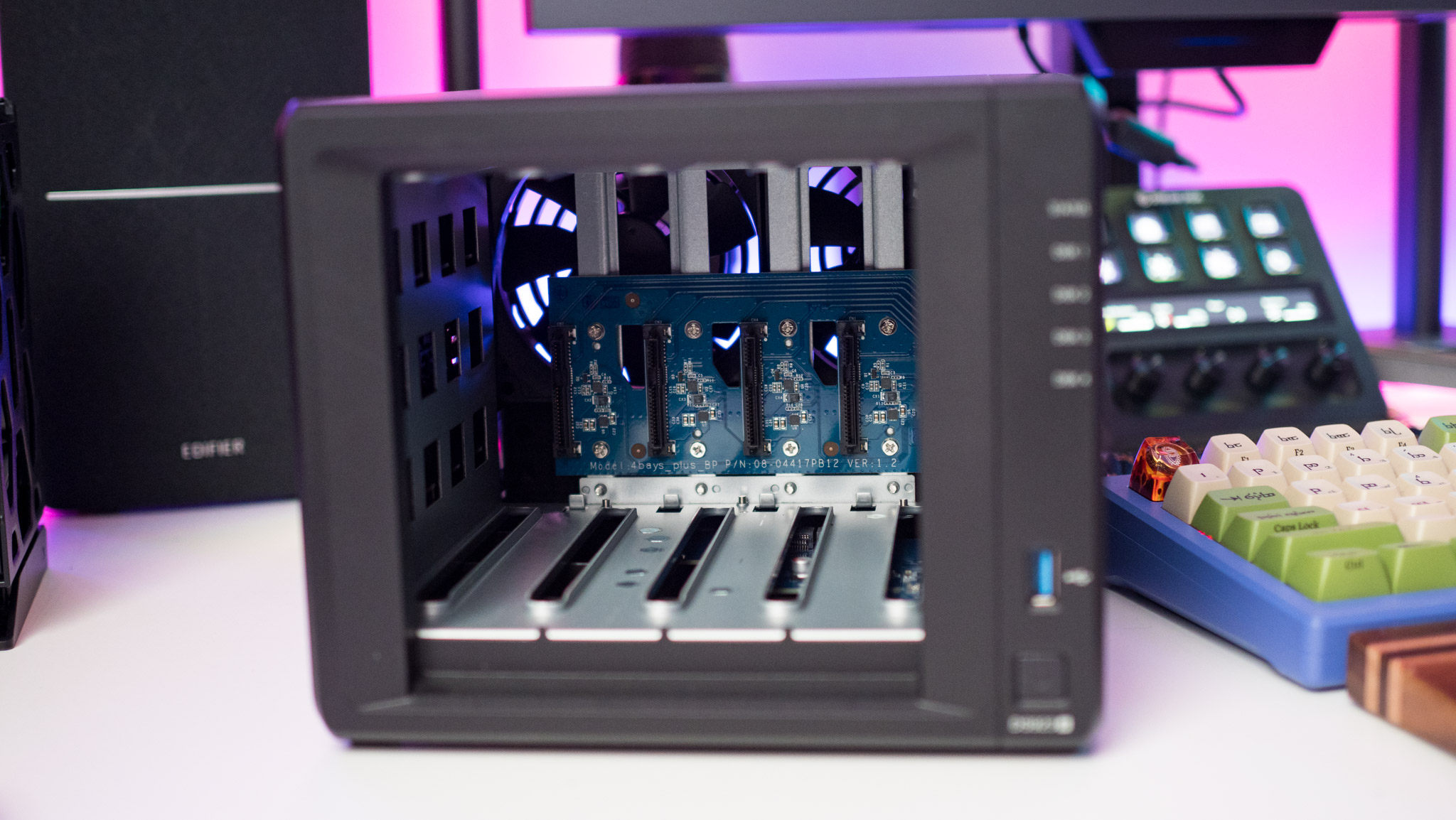
That said, even without the ability to transcode content, the DS923+ is among the best NAS for Plex; it does a terrific job when using the direct streaming option, and looking at my Plex server logs over the years, I haven't really utilized the transcode option even when it was available. But if this is a feature that you need, then yes, the DS920+ is the model to get.
Get the latest news from Android Central, your trusted companion in the world of Android
Then there's the ability to use M.2 drives as storage. This is a feature that I've been personally waiting for since several years, and Synology took its time rolling it out. Thankfully, the DS923+ makes it extremely straightforward to set up an M.2 SSD as a storage drive; just slot in an SSD and configure it in Storage Manager, and you can start using it right away.

Synology cited overheating issues for not allowing M.2 drives for storage in the past, and that's why they were limited to SSD caching. That's the reason why the DS920+ doesn't have this particular feature; while it has the same drive bays, you can only use M.2 drives for caching data, and not storage.
Another omission is 10GbE networking. Now, the DS923+ doesn't have 10GbE ports out of the box, but it has a PCIe slot that lets you add in a 10GbE networking card with relative ease. This card costs an additional $140, and while Synology really should have added at least 2.5GbE ports at the back, this is a good alternative.
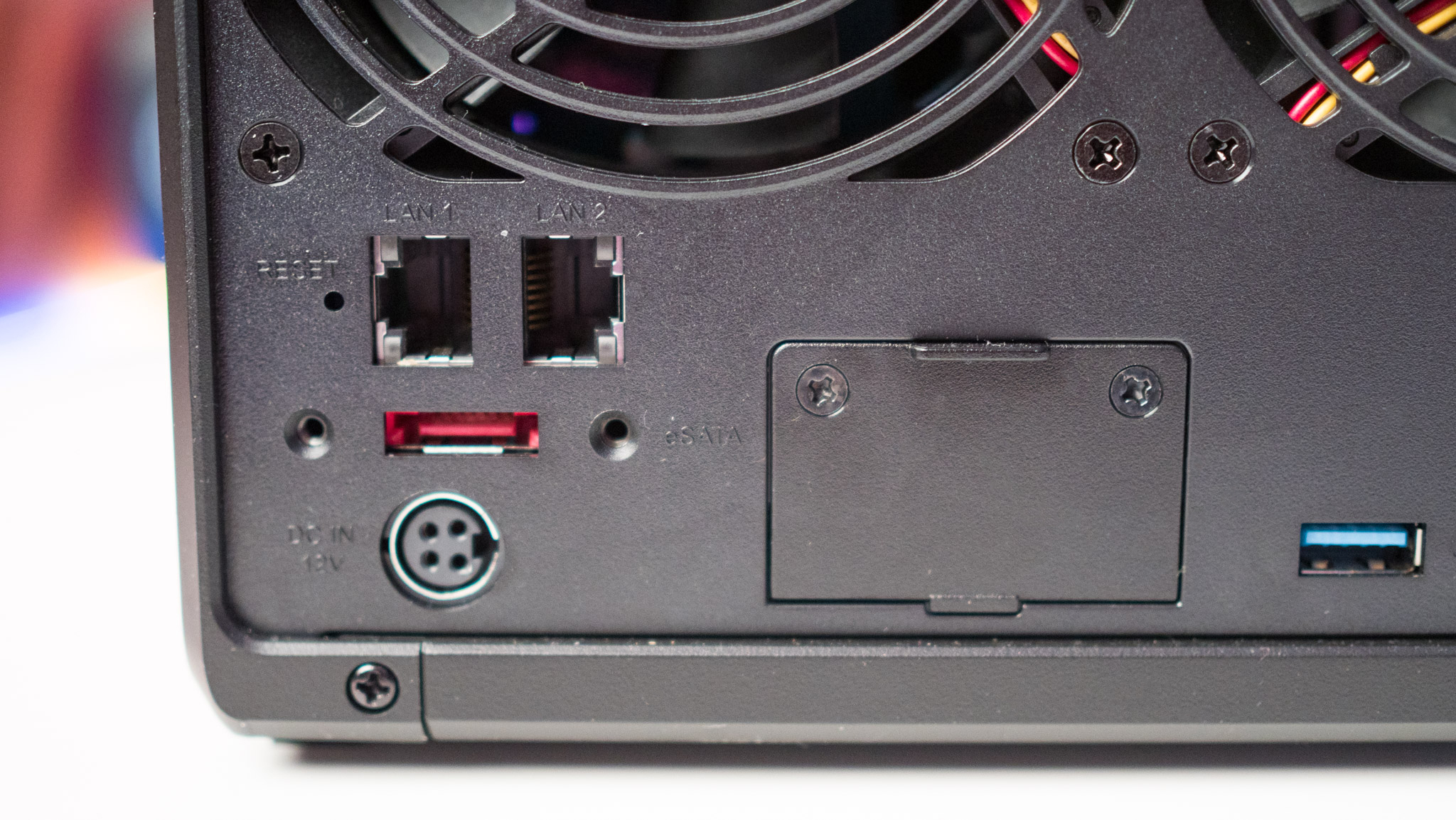
The DS920+ misses out in this area, and you're limited to the dual Gigabit Ethernet ports at the back. Now, this isn't a limitation as such as you can maximize bandwidth with Link Aggregation, and honestly, most home users interested in buying the DS923+ or DS920+ will be perfectly content with the Gigabit ports as they deliver more than adequate bandwidth for media streaming.
That said, if you're looking at either NAS to serve as a media storage device in addition to running a few office-related tasks, the ability to switch to 10GbE networking down the line is a big bonus on the DS923+.
DiskStation DS923+ vs. DiskStation DS920+: Which should you buy?
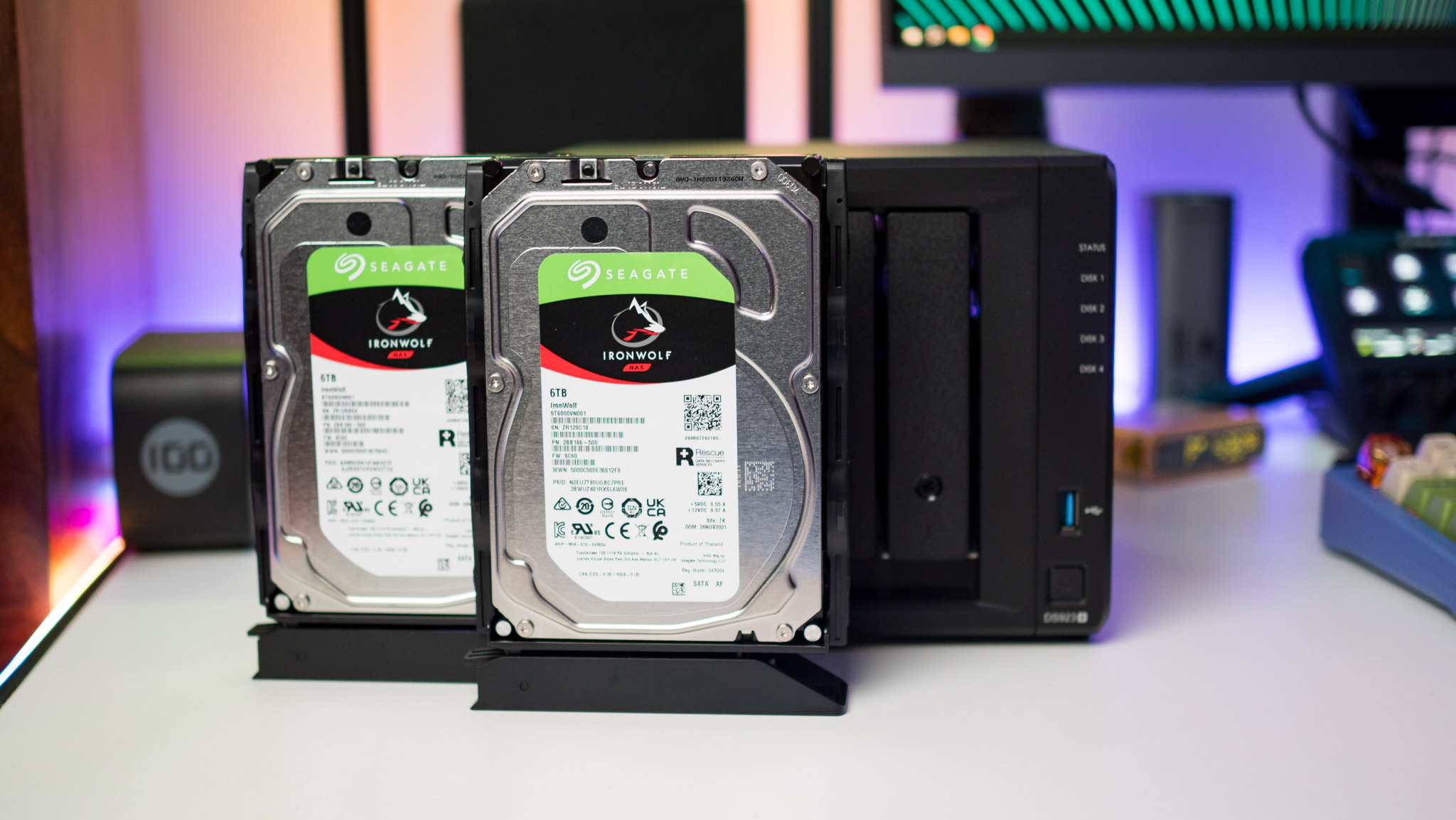
For my own use case, the ability to slot in an M.2 drive and use it as a storage drive makes the DiskStation DS923+ the obvious choice. While I would have liked to see at least 2.5GbE ports at the back of the NAS, the optional upgrade to 10GbE is a good workaround — if a little pricey.
Sure, the DS923+ misses out on Plex transcodes, but that hasn't been a problem for several years; most modern devices have the requisite codecs to run almost all media formats without needing to transcode, and I didn't see any issues at all with Plex direct streaming on the multitude of devices I tested with the DS923+.
Some of the upgrades on offer here are divisive, and if you absolutely need the ability to transcode Plex content, then yes, the DS920+ is the better choice. While that's an area where the older NAS wins out, it doesn't come with a way to switch to 10GbE networking, and you're limited to SSD caching with the M.2 drives.
If you're looking to pick up your first NAS or are thinking of upgrading, the DiskStation DS923+ has all the features you're looking for, and then some. The hardware is clearly built to last, and the amount of features available with DSM 7.1.1 make the DS923+ the best overall choice for a 4-bay NAS in 2023.

The ideal Plex server
If you need a new 4-bay NAS for media streaming in 2023, you should pick up the DS923+. It has all the software features you're looking for, and while there's no hardware transcoding, that really doesn't limit the NAS in daily use.

Still going strong
The DS920+ is still a good choice, even if it's missing a few features. It's a particularly great option if you want built-in hardware transcoding. Availability is a bit of an issue these days as inventory runs out, but if you don't care about SSD storage and want an Intel-powered server, the DS920+ has a lot to offer.

Harish Jonnalagadda is Android Central's Senior Editor overseeing mobile coverage. In his current role, he leads the site's coverage of Chinese phone brands, networking products, and AV gear. He has been testing phones for over a decade, and has extensive experience in mobile hardware and the global semiconductor industry. Contact him on Twitter at @chunkynerd.
